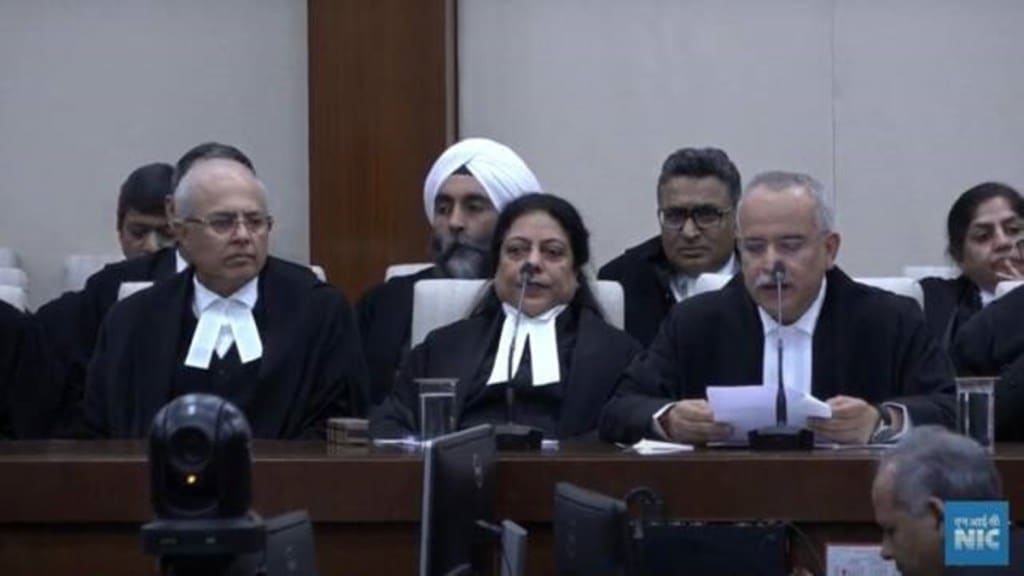Delhi High Court Justice Mukta Gupta concluded her illustrious judicial career by pronouncing 65 verdicts on her penultimate day as a judge, adding to her extensive list of authored and co-authored judgments over a span of 14 years, the Bar and Bench reported.
Among the 65 decisions pronounced on the eve of her retirement, a bench headed by Justice Gupta commuted the death penalty of a prisoner. In another notable ruling, she presided over a bench that awarded a 20-year imprisonment without remission to two men convicted in a heinous rape and murder case, according to the Bar and Bench.
Also Read: Delhi HC directs SpiceJet to pay Rs 380 cr to former promoter Maran
Justice Mukta Gupta retires as the sixth senior-most judge of the Delhi High Court, and she holds the distinction of being the only woman among the ten most senior judges.
Who is Justice Mukta Gupta?
Born on June 28, 1961, Justice Gupta attended Montfort School in Delhi before pursuing her Bachelor’s degree in Life Sciences with honors in Zoology from Hindu College, Delhi University, in 1980. She then obtained her law degree from Campus Law Centre, Delhi, in 1983 and enrolled as an advocate with the Bar Council of Delhi in 1984.
Prior to her appointment as a judge, Justice Gupta had an illustrious career as a lawyer, handling cases ranging from civil to criminal laws, constitutional matters, and service issues. She served as an additional public prosecutor in the Delhi High Court from January 1993 and as the standing counsel (criminal) for the Delhi government from August 2001.
Also Read: Delhi HC grants bail to Nepalese national in espionage case
Her notable appearances as a lawyer include high-profile cases such as the Parliament and Red Fort shootout cases, the Jessica Lal murder case, the Naina Sahni murder case, and the Nitish Katara murder case, both in the Delhi High Court and the Supreme Court.
As a counsel for the Central Bureau of Investigation (CBI), she argued cases such as the Naval War Room leak case, the Priyadarshini Mattoo murder case, and the Madhumita Sharma murder case. Her efforts as a prosecutor led to convictions in these significant cases.
Since June of the previous year, she has played a crucial role in over 220 verdicts, impacting the legal landscape.
In a case involving a runaway couple seeking protection, Justice Gupta recognised the need for safe houses catering to couples facing resistance from families, regardless of their caste, religion, or sexual orientation.

